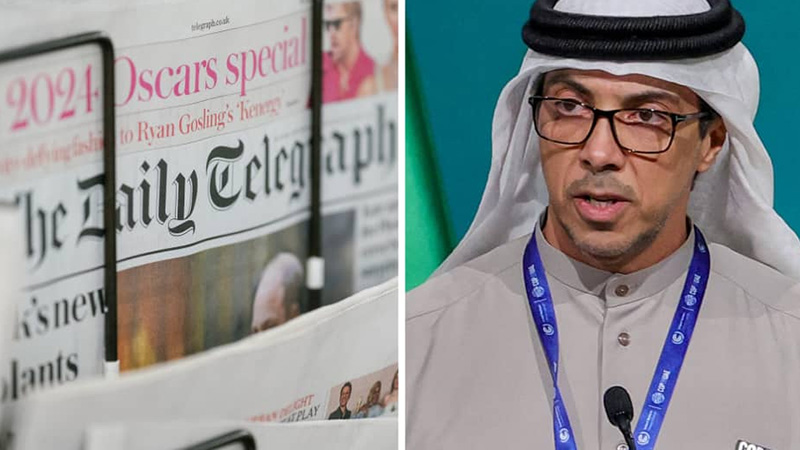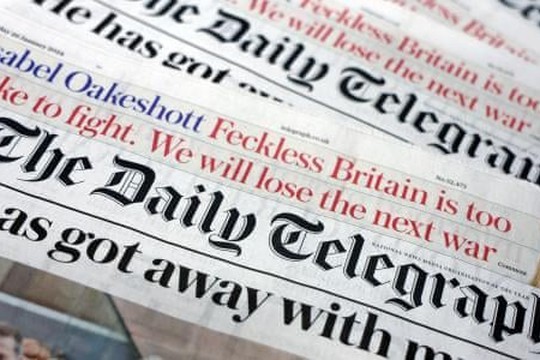More than 100 MPs back calls to block controversial sale of Telegraph to UAE-funded firm. The amendment would require parliament’s approval before UK news media organisations could be purchased by a foreign government, ‘The Independent’ stresses.
As the deadine looms for the government to decide whether the Telegraph should be sold, there was an intervention in parliament this week.
More than 100 MPs made a plea to block the sale of the newspaper to a UAE-funded firm, warning the move threatens to undermine free press in the UK.
The proposed sale of the Telegraph newspapers and the Spectator is to a company based in America called RedBird IMI, which is run by Jeff Zucker, the former CNN chief. It derives most of its funding from Sheikh Mansour bin Zayed al-Nahyan, a member of the ruling family of Abu Dhabi, who is vice-president of the UAE and owner of Manchester City FC.
It is understood that RedBird IMI is offering to help pay the £1.16 billion in debts that the current owners, the Barclay family, owe to Lloyds Bank.
The proposed move has prompted a fiery debate with figures such as Andrew Neil and former Telegraph editor Charles Moore arguing that it would undermine editorial independence.
Others argue that Mansour’s IMI would be involved in the deal in a private equity capacity, which would not entitle it to editorial sway, and that foreign investment should be welcomed.
Former Times leader writer Simon Nixon wrote: “Takeovers of news organisations by foreign governments should not only face the usual scrutiny by regulators and government, but also from elected representatives in parliament as a final bulwark for press freedom.”

Journalists, media watchers and Conservative MPs seemed blindsided when RedBird IMI, an investment consortium led by the former CNN president Jeff Zucker and financially backed by the Manchester City owner and vice-president of the United Arab Emirates, Sheikh Mansour bin Zayed Al Nahyan (photo), moved to take control in return for repaying the Barclays’ debts, notes The Guardian.
It sparked fears that the influence of Gulf states, which has pervaded football’s Premier League, was spreading to the UK’s media landscape, with one source inside the Telegraph saying: “We’ve had sportswashing, are we now seeing newswashing?”
Amnesty International said the deal would have serious implications for press freedom in the UK, while the Telegraph published a leader stressing that its editorial independence must be guaranteed.
By Tuesday, the auction of the publications, which had kicked off at the end of October, had been paused, and a day later the culture secretary, Lucy Frazer, heeded a letter sent by Tory MPs that said “influence over a quality national newspaper being passed to a foreign ruler at any time should raise concerns [and] must be investigated”.
“Here you have a major national asset with huge influence, particularly one side of the political spectrum, essentially bought by the [vice-]president of Abu Dhabi,” said Davis.
read more in our Telegram-channel https://t.me/The_International_Affairs

 11:22 19.03.2024 •
11:22 19.03.2024 •























